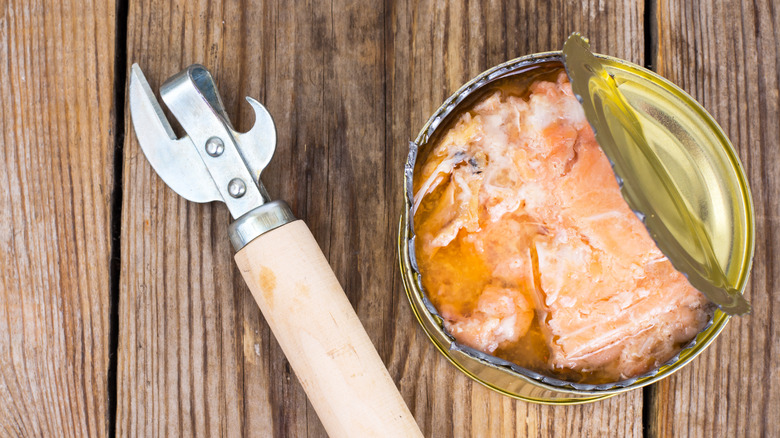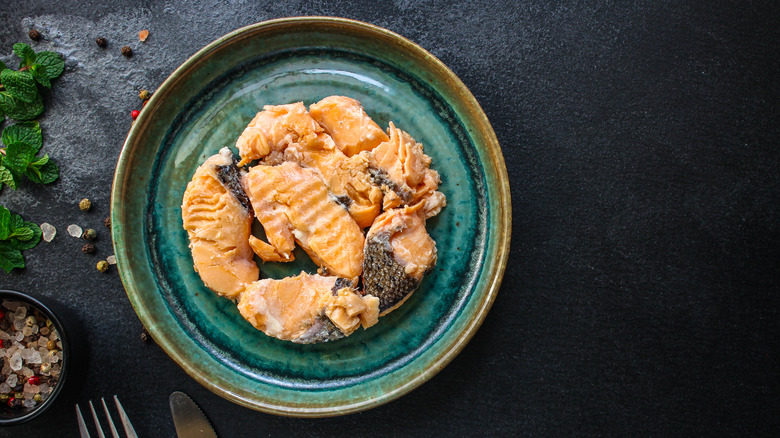Why You Should Keep Canned Salmon In Your Pantry
Most people know by now that fish is an incredibly healthy food. Not only is fish packed with protein, but it's a good source of nutrients such as vitamin D and omega-3 fatty acids, which may improve both brain and heart health, help with depression and other mental conditions, and reduce the risk of diabetes and other autoimmune diseases (via Healthline). In fact, the U.S. Food and Drug Administration recommends eating at least 8 ounces of fish a week.
However, not everyone may have easy access to fresh fish. Fresh fish can also get pricey, making it difficult to incorporate as a regular part of the diet for many people. Luckily, canned fish is a great alternative to fresh fish, according to Mic. Most people probably already have a few cans of tuna packed away in the recesses of their pantry. And while canned tuna is an easy and cheap option that's readily available, canned salmon might be an even better option when it comes to nutrition and sustainability.
Canned salmon is a good alternative to canned tuna
When it comes to omega-3 fatty acids, salmon easily beats out tuna. According to the National Institutes of Health, canned tuna typically contains 0.19 grams of omega-3 fatty acids per 3-ounce serving compared to 0.95 grams for canned salmon. Canned salmon also tends to have less mercury and other heavy metal toxins than canned tuna, according to The Atlantic, which also notes that salmon is fished in a more sustainable manner with less impact to the overall marine environment than tuna.
Canned salmon tends to be either pink salmon or sockeye salmon (via SF Gate). Pink salmon has a more delicate taste than sockeye salmon, according to Chef Stephanie Harris-Uyidi, author of "The Posh Pescatarian," who also calls canned salmon a must-have (via MSN). The Spruce Eats recommends looking for wild-caught salmon, which Alaskan and Pacific salmon usually are, and avoiding Atlantic salmon, which are usually farmed. Canned salmon can be stored in the pantry for up to 3 years, in the freezer for up to 3 months, and in the fridge in an airtight container once opened for 3 to 4 days (via Unlock Food). So the next time you're at the market, be sure to grab a few cans of salmon to add to your pantry.

